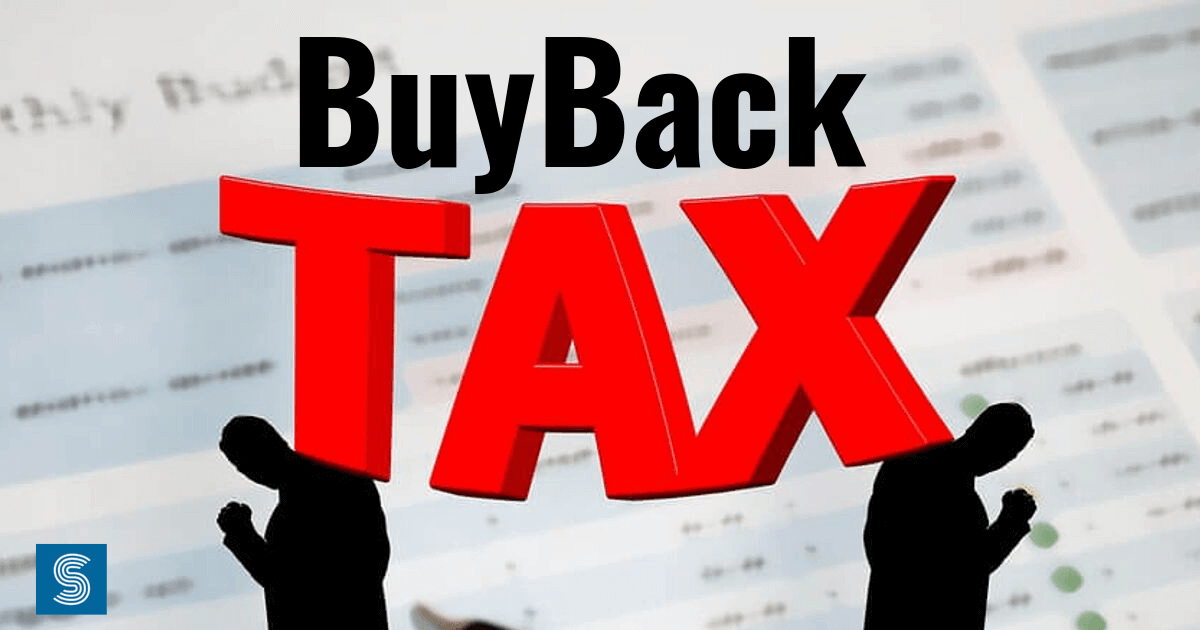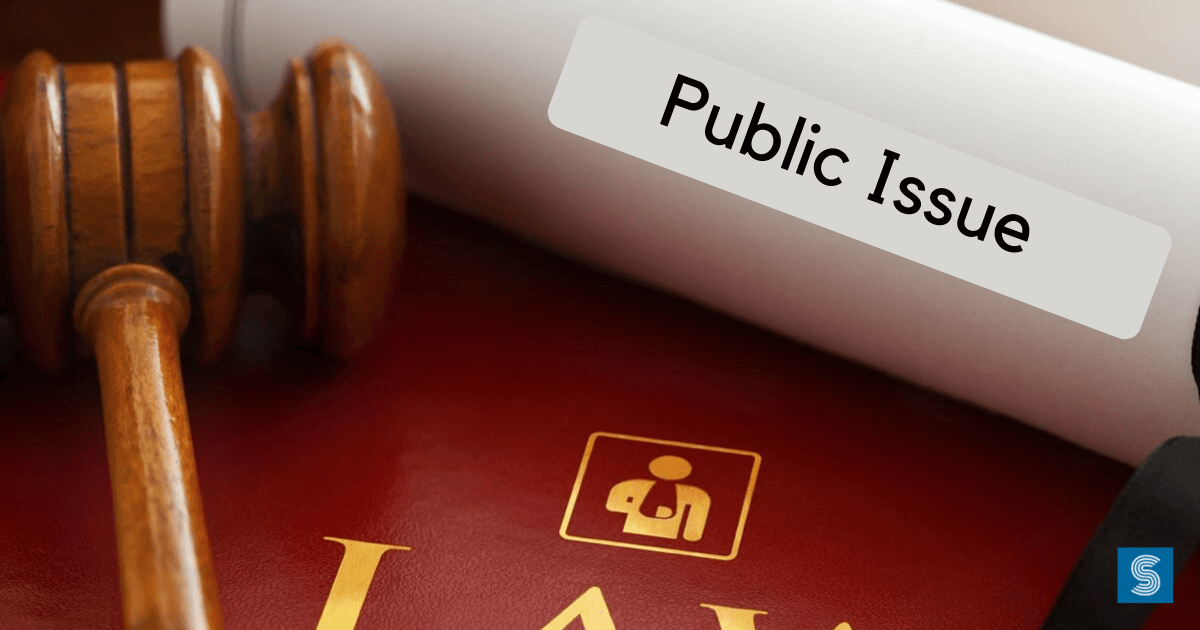Buyback of Shares: A Detailed Analysis

Shivani Jain | Updated: Apr 20, 2020 | Category: SEBI Advisory
Buyback of shares is a process of financial engineering and is one amongst the several provisions of the Companies Act, 2013[1] that allows a company to buy its own shares or other securities back, that too, with inherent advantages to the company and its shareholders. Further, the repurchasing of shares from the existing shareholder is normally done at a price higher than the market price. Moreover, transactions of this nature permit a company to make suitable investments, as a reduction in the outstanding share count augments the proportion of a company’s shares.
Further, the process of Buyback is one of the ways of providing funds to the shareholders instead of dividends. Also, Buybackacts as one of the significant modes of capital restructuring, and it also assists in achieving the purpose of increasing EPS (Earning per Share) along with improved returns to the shareholders. Hence, Buyback of shares is an alternative for reducing share capital.
Table of Contents
Reasons behind opting the process of Buyback
The following listed are the reasons behind the process of Buyback of shares –
- To improve shareholder value– As we know, buyback of shares provides a way out for utilizing the surplus of funds available with the companies which have an unattractive alternative investment option. But a reduction in the share capital due to buyback of shares usually results in higher EPS (Earning Per Share).
- Can be used as a Defence Mechanism–Buyback of equity shares can be used as a defense mechanism in the environment where the danger of corporate takeover has turned out real. Further, the process of the Buyback of shares helps in safeguarding a company against the hostile takeover by increasing promoter’s holdings.
- Provides flexibility–Buyback of shares helps a company to shrink their equity share capital by providing much-needed flexibility.
- Improves the intrinsic value– Buyback of equity shares improves the intrinsic value of the shares by reducing the level of floating stock.
- Assist in the process of merger and acquisition–Using Buyback of shares helps the company in the process of mergers and acquisitions, that too, without enlarging its capital base.
- Financial Engineering–The process of buyback of equity share is also used as a scheme of financial engineering.
- Effect on Share Price– The process of buyback of shares is used for indicating the effect of it on the share price.
Legal Provisions governing Buyback of Shares
The following listed are the provisions that govern the concept of Buyback of shares –
- Companies Act, 2013 – Section 68, 69 and 70
- Companies (Share Capital and Debenture) Rules, 2014 – Rule 17
- SEBI (Buyback of Securities Amendment) Regulations, 2013, together with the succeeding amendments after that.
Modes for Buyback of Shares
The modes for the buyback of shares are provided under section 68(5) of the Companies Act, 2013. The following listed are the practices which can be used for buyback of shares –
- From the Open Market
- From the existing shareholders on a proportionate basis
- By purchasing shares from an employee under ESOP (employee stock option plan)
Conditions to be fulfilled for Buyback of shares
The following listed are the pre-requisites for the buyback of shares –
- The buyback of shares must be authorized by the company’s AOA (Articles of Association).
- The Buyback of Shares can be done by way of the following listed –
- Company’s Free Reserves
- Company’s Securities Premium Account
- The proceeds of the issue of shares or other specified Securities
- The debt-equity ratio of a Company must not exceed the threshold of 2:1. This means that the total secured and unsecured debt after the process of Buyback will not be more than twice of the paid-up capital and free reserve.
- The Shares and all the other Securities for Buyback must be fully Paid-up.
- The company will not issue any fresh shares within a period of six months, starting from the date of completion of Buyback.
- There must be a minimum one-yeartime gap between two Buyback.
- Maximum Limit concerning Buyback of Shares –
- Buyback of the shares is allowed only up to 25 per cent of the total paid-up share capital and free reserve.
- If in case the buyback is either 10 per cent or less than 10 per cent, the same has to be duly authorized by way of board resolution passed in the Board Meeting.
- In case the Buyback of shares is 25 per cent of the total paid-up equity capital and free reserve, the same has to be duly authorized by way of Special Resolution.
- No Buyback can be done from the proceeds of a previous issue of Shares and other Securities.
- The process of Buyback has to be completed compulsorily within a period of one year starting from the date of passing aboard resolution or special resolution for the authorization of Buyback.
Other Necessary Provisions
The following listed are some other necessary provisions concerning Buyback of shares –
- The concerned company that has been permitted by a special resolution shall, prior to the buyback of shares, file with the Registrar of Companies (ROC) a letter of offer in the Form No. SH. 8.
- File a declaration of economic condition in the form SH-9, with the ROC. Further, the said declaration must be signed by at least two directors of the company, one amid whom must be the MD (Managing Director), if any.
- Provision for buy-back will remain open for a minimum of fifteen days and not more than thirty days starting from the date of dispatch of the said letter of offer.
- No provision regarding Buy-back will be created for at least one year starting from the closure of preceding Buyback.
- Extinguish and physically destroy all the shares or securities bought back. The same shall be done within seven days from the last date of completion of buyback.
- File a return in the form SH-11 with the ROC (Registrar of Companies) within a period of thirty days after the completion of Buyback.
- The company is required to maintain a register in the form SH-10 for the securities and shares bought back. Further, full details and particulars have to be mentioned in a register. The term details include consideration paid for the buyback shares, cancellation date of shares, date of physically destroying the shares. Furthermore, such a register has to be preserved at the registered office of the concerned company and moreover, it has to be kept in the custody of the CS (company secretary).
Financing Aspects of Buyback
Finance acts as a core for business activities. Even the success of a company depends upon the better and effective management of the available funds and finance. For buyback of shares and securities in a large count, the company needs a large amount of capital and funds, and the same may be mobilized by one or more of the sources listed below –
- Internal sources
- Sufficient cash position
- Selling of temporary investment that too with least possible loss
- Raising of working capital needs
- Raising cash by way of issuing fixed deposits (FD)
- Raising cash by way of issuing debentures and loan bonds
- Cash credit from the commercial bank
- Overdraft from the commercial bank etc.
Prohibitions regarding Buyback of shares
The following listed are the prohibitions concerning the process of buyback of shares –
- A company will not do a buyback of shares from its own subsidiary company;
- A company will not do a buyback of shares by way of any investment trust or from the cluster of investment companies;
- A Company will not do a buyback of shares in case the concerned Company has made any default in the following listed –
- Repayment of Deposits is accepted either prior to or after the enactment of the Companies Act, 2013,
- Payment of the Interest thereon
- The payment of Dividend to any Shareholder,
- Redemption of either the Debentures or the Preference Shares of Company,
- Repayment of any term loan or any interest payable thereon to any Financial Institution or Banking Company.
- A Company will not do a buyback of shares if it has not duly abided by the provisions of Section 92, 123, 127, and129 of the Companies Act, 2013.
Procedure for the Buyback of Shares
The following listed are the steps involved in the procedure concerning buyback of shares –
- The first and foremost step is to call a board meeting. Further, the notice regarding the said meeting must be at least seven days prior to the date of the meeting.
- Once the process of buyback is approved in the board meeting. Fix the date for conducting Extra-Ordinary Meeting (EGM), approve the notice of EGM together with explanatory statement u/s 102.
- Send the notice of said EGM at least 21 days prior to the date of EGM
- Now, conduct the Extra-ordinary General Meeting and pass a special resolution for the approval of Buy-Back of shares
- After passing the Special Resolution, in the next step, the company is required to file the letter of offer with the registrar of companies in the form SH-8, the same has to be signed by at least two directors of the company.
- Now, the company is required to file the declaration of Solvency (economic condition) in the form SH-9, the same also has also to be annexed with the form SH-8. Moreover, the declaration is also required to be signed by two directors.
- The letter of the offer has to be sent to the concerned shareholders within a period of 20 days of filing SH-8 with the registrar.
- The letter of the offer has to be kept open for a minimum of 15 days and a maximum of 30 days.
- Within 15 days of closure, the said letter of offer is deemed to be accepted until and unless a communication regarding rejection is made within a period of 21 days of closure of an offer.
- The company is required to open a separate bank.
- The total amount of consideration required to be paid for the shares offered in the Buyback has to be deposited in that separate bank account.
- Consideration is required to be paid in cash within a period of 7 days of verification.
- It is significant to note that the shares bought back are required to be physically destroyed within a period of 7 days from the completion of Buy-Back.
- Lastly, within 30 days of the completion of the process Buy-Back, a return in the form, SH-11 is required to be filed with the Registrar.
Penalty clause for Buyback of shares
As per Section 68(11) of the companies act, 2013, if in case a company makes any default while complying with the provisions provided in the act, the same shall be punishable with fine not less than rupees one lakh but which may extend up to rupees three lakh. Further, every officer of the concerned company who is a part of default committed shall also be punishable with imprisonment for a term not less than three years or with a fine not less than rupees one lakh, which may extend up to rupees three lakh rupees, or with both.
Conclusion
The Company for improving its market standing goes for the process of Buyback. Further, the process of Buyback of Shares is a time-consuming task, and it acts as one of the significant modes of capital restructuring, and it also assists in achieving the purpose of increasing EPS (Earning per Share) along with improved returns to the shareholders. Hence, Buyback of shares is an alternative for reducing share capital.














